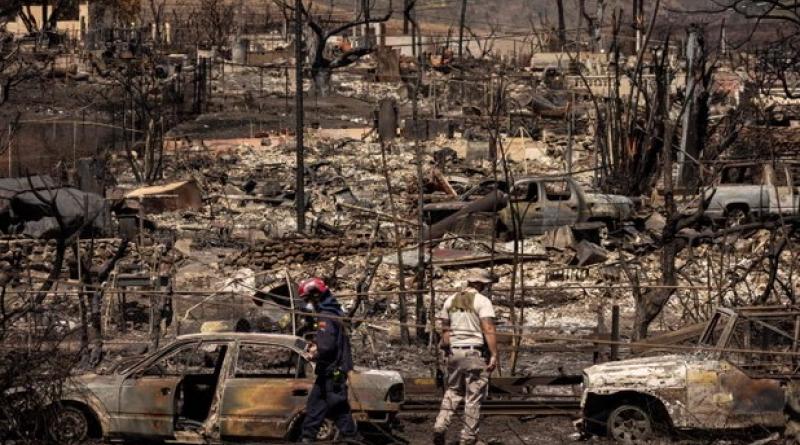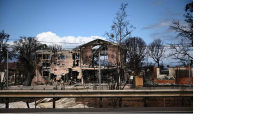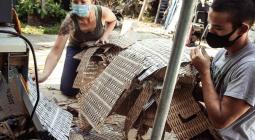The Hawaii fires are a dire omen of the climate crisis’s cost to Pacific peoples

As temperatures rise across Oceania, droughts are becoming more extreme and strong winds drive catastrophic fires.
Hawaii was never paradise. Since the day my ancestors first stepped ashore, our islands have been devastated by hurricanes, tsunamis, earthquakes and erupting volcanoes that buried whole towns.
But fires are something new. We were not prepared. Our officials were not prepared, for a raging inferno of 1,000-degree heat that moved at lightning speed, reducing our historical town of Lahaina – once the capital of the Hawaiian kingdom – and 2,000 homes to ash. More than 1,300 people are still missing. At this stage, many will not be found. Cadaver dogs whine with frustration. They are uncovering mostly ash.
How did this happen? We need somewhere to place the blame. Herman Andaya, head of the Maui Emergency Management Agency, has publicly stated that emergency sirens were intentionally not activated because they are used for tsunami warnings. He feared that people, hearing the sirens, would run the wrong way, into the oncoming fires. This decision is not only the apotheosis of stupidity. It feels criminal. He has already resigned. Massive lawsuits are being brought against Mema. But how to compensate for the loss of lives, the indelible image of families locked in melting cars?
Still, there is something larger to consider here. The sirens would have alerted people, they might have saved innumerable lives, but they would not have stopped the raging fire itself that leveled Lahaina. Beyond Mema and the agency’s unfathomable decision, a lethal combination of prolonged drought, parched grasslands and hurricane-force winds were what destroyed the town.
Hawaii will never recover from this loss. Nor will other Pacific peoples. Across our Oceanic continent, rainfall is decreasing drastically. Island droughts are becoming extreme as global temperatures continue to rise. Strong winds will create more catastrophic fires, as we have already witnessed in Papua New Guinea, parts of Australia and New Zealand, and in smaller landmasses in French Polynesia and Samoa.
I want to talk about greed – about global nuclear weapons testing, chemical corporations, oil drilling, big pharma. But I fear it’s too late. I have little hope that our planet can recover. Parts of Europe are in flames. Towns in Norway are flooding from torrential rains. Canada is ablaze, an entire city evacuating. Amid the mass genocide in Darfur, the ground is barren, once-fertile fields have gone to dust. There is no food for fleeing refugees.
On good days I remind myself that Hawaiians were among Earth’s first celestial navigators – its naked-eye astronomers – who valiantly crossed the vast Pacific in search of new and fertile islands. On darker days I contemplate our islands – fragile dots on the planet facing imminent extinction.
-
Kiana Davenport is a writer of Native-Hawaiian and Anglo-American descent. She is the author of eight novels and three anthologies: Prize-Winning Pacific Stories
Photograph: Yuki Iwamura/AFP/Getty Images - ‘The sirens would have alerted people, they might have saved innumerable lives, but they would not have stopped the raging fire itself that leveled Lahaina.’





